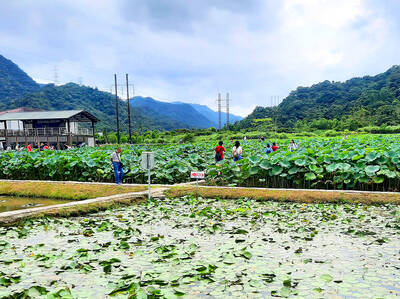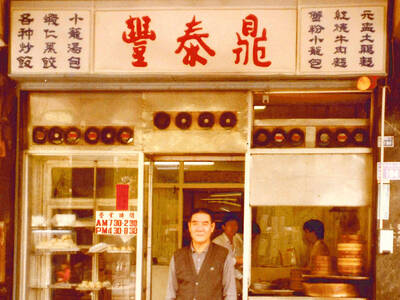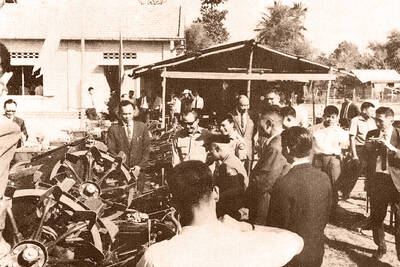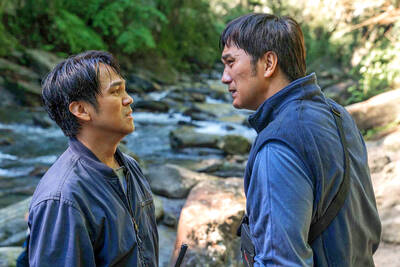A string of salacious novels, a high-flying lifestyle, a glamorous presence and consistently provocative opinions characterize Shobhaa De, India’s best-selling English-language author. In this new book — to be published in London next week — she embarks on a round-up of aspects of life in modern India, from sex to money and fashion to politics, coming up with a sequence of racy taunts, unsupported assertions and gushing enthusiasms.
This isn’t a book to look to for measured analysis or a systematic thesis. De’s style is essentially that of the magazine columnist faced with readers with short attention spans — catchy phrases, a would-be-shocking honesty, exclamation points in abundance, and paragraphs that end with Right now! You bet! Scary! or Crazy or what?
De’s cast of mind and her style are, of course, connected. Superstar India, you feel, is a book intended to be read in short bursts between eating a chapatti and reaching for a glass of lassi, and prompting exclamations of Really? I don’t believe it! Too shocking! and How dare she? The effect is augmented by Penguin’s decision to highlight what it deems to be key sentences in bold type, and scatter the pages with other sentences reprinted large, magazine-style. This has the effect of drawing your attention to the text, while at the same time ensuring you’re never tempted to take any of it too seriously.
A section on her first visit to China is typical of De’s approach. She arrives in Shanghai (“the glitzy city on steroids that’s attracting the world’s high-rollers”) and finds its airport superior to the one at Mumbai (“Have garbage. Will throw.”). She thinks the Chinese have got the tourism business right too — “... the basic infrastructure, good roads, decent hotels, clean and well-organized sites, inexpensive food and no touts or beggars harassing the unwary.” But in other ways China has a lot in common with De’s homeland — fake goods openly on display in licensed shops, seriousness in putting the family first, and a willingness to answer personal questions without batting an eyelid. “Just like India! ... I love it!”
“What is the truth in China?” she writes. “Nobody knows. And nobody cares.” Should India be afraid of China? You bet! “With the world’s biggest standing army and the soaring territorial ambitions they have, there’s no way we can sit back and relax.” Again, “Chinese chicks will buy the lot — hand creams, face creams, butt creams. Chinese women will all want to be Zhang Zilin (張梓琳).” On the other hand, if China and India were to combine their economic energies, they could dominate the world.
This is a book that you imagine was written by someone with a flowery hat and a tight-fitting sari, sweeping you through airports with her redoubtable energy and unstoppable flow of opinions. Come along, darlings, it’s the Chinese next, and I bet you can’t wait to hear what I think of them, now can you?
It’s hard to unravel the author’s genuine feelings from all this tangle of chatter. She does have a lot to say about women, though any suggestion that she’s a feminist is received with horror in Indian academic circles. Indian women are still too used to playing second fiddle, she asserts, and she sees Indian men as terrified by a woman with her own opinions and a disposable income. Marriage for money, on the other hand, she perceives as only natural. Sex is probably more frequently indulged in by the younger generation, she believes, though underneath the boasts and bravado many traditional attitudes prevail.
Money is an even more prominent topic in Superstar India than sexual attitudes. De is the mother of six and the financial habits of the young — brash, aggressive, ignorant, and obsessed with brands and labels — come in for some criticism. She sees herself as stranded between her own father’s adherence to austerity, and even sacrifice, and the affluent young’s penchant for cool spending, living for the moment, and succumbing to “the urge to splurge.”
In this, De is what she is in many other spheres of life — on the one hand still the affluent rebel who mentions the unmentionable almost as a matter of course, but at the same time also the responsible matriarch. When it comes to religion, for instance, she’s quite happy with modern, laborsaving shortcuts when preparing for the great festivals such as Diwali, while also hoping that India’s traditions, including its spiritual ones, will survive. (Are the young concerned about poverty and interested in snake charmers? She’s not too sure).
She can be sardonic. “When all else fails, we pull out Gandhi,” she writes, and counts four Paris restaurants named after the Mahatma. Vegetarian and teetotal establishments? “Hell, no — beef pasanda and Burgundies galore on all these menus.” And she’s been almost everywhere. She recounts meeting the UK’s Prince Charles (“Jug Ears”) and telling him the novels she writes are “bodice-rippers,” takes a few days off in St Moritz, and eats at “a very posh Steak House in Dubai.”
There are many serious points, though — that it suits politicians to keep minorities insecure (“Hate creates vote banks. Tolerance doesn’t. It’s that simple”), that food shortages are mostly man-made, as the Nobel laureate Amartya Sen demonstrated, and that the single-child Chinese girl marrying the single-child Chinese boy will have to look after two sets of aging parents, her own and her husband’s. Poverty, domestic violence, dowry-deaths, the treatment of Muslims, the way Western women on their own in India tend to get groped — none of these are swept under the carpet.
“Am I being a cynical bitch?” she asks at one point. Probably not. This garrulous book tells you a lot about modern India, even though it’s best taken in rather small doses.

The recent decline in average room rates is undoubtedly bad news for Taiwan’s hoteliers and homestay operators, but this downturn shouldn’t come as a surprise to anyone. According to statistics published by the Tourism Administration (TA) on March 3, the average cost of a one-night stay in a hotel last year was NT$2,960, down 1.17 percent compared to 2023. (At more than three quarters of Taiwan’s hotels, the average room rate is even lower, because high-end properties charging NT$10,000-plus skew the data.) Homestay guests paid an average of NT$2,405, a 4.15-percent drop year on year. The countrywide hotel occupancy rate fell from

March 24 to March 30 When Yang Bing-yi (楊秉彝) needed a name for his new cooking oil shop in 1958, he first thought of honoring his previous employer, Heng Tai Fung (恆泰豐). The owner, Wang Yi-fu (王伊夫), had taken care of him over the previous 10 years, shortly after the native of Shanxi Province arrived in Taiwan in 1948 as a penniless 21 year old. His oil supplier was called Din Mei (鼎美), so he simply combined the names. Over the next decade, Yang and his wife Lai Pen-mei (賴盆妹) built up a booming business delivering oil to shops and

In late December 1959, Taiwan dispatched a technical mission to the Republic of Vietnam. Comprising agriculturalists and fisheries experts, the team represented Taiwan’s foray into official development assistance (ODA), marking its transition from recipient to donor nation. For more than a decade prior — and indeed, far longer during Chinese Nationalist Party (KMT) rule on the “mainland” — the Republic of China (ROC) had received ODA from the US, through agencies such as the International Cooperation Administration, a predecessor to the United States Agency for International Development (USAID). More than a third of domestic investment came via such sources between 1951

Indigenous Truku doctor Yuci (Bokeh Kosang), who resents his father for forcing him to learn their traditional way of life, clashes head to head in this film with his younger brother Siring (Umin Boya), who just wants to live off the land like his ancestors did. Hunter Brothers (獵人兄弟) opens with Yuci as the man of the hour as the village celebrates him getting into medical school, but then his father (Nolay Piho) wakes the brothers up in the middle of the night to go hunting. Siring is eager, but Yuci isn’t. Their mother (Ibix Buyang) begs her husband to let